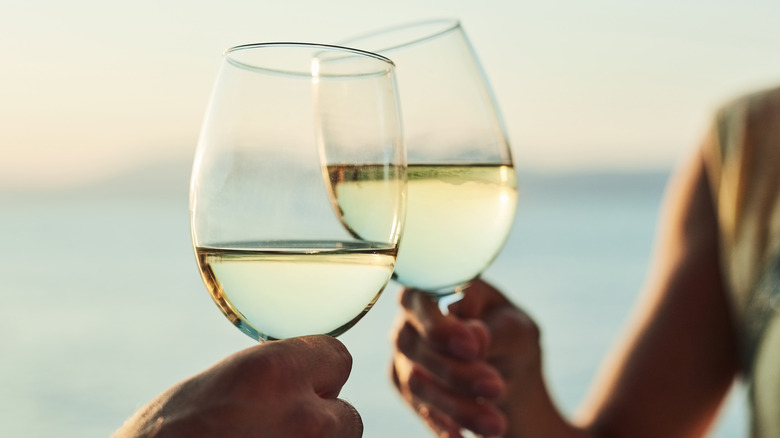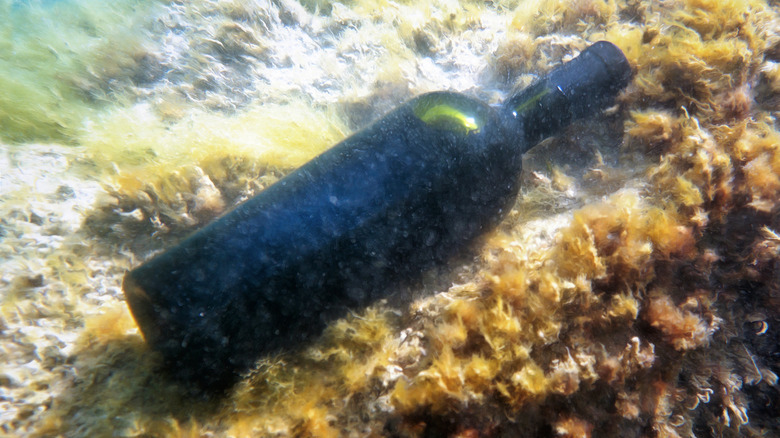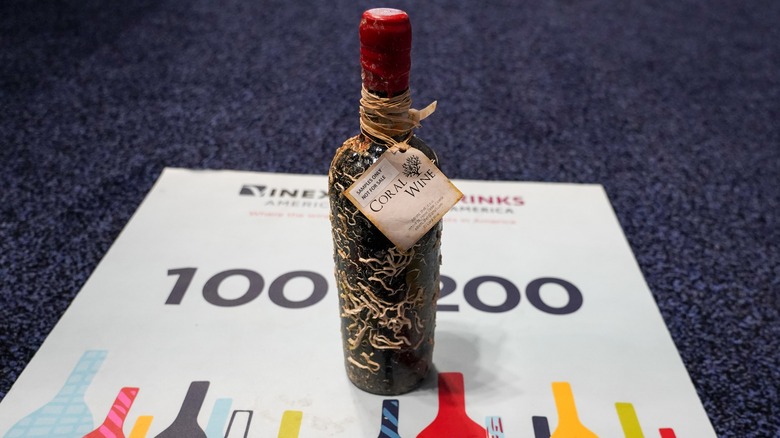Does Aging Alcohol Underwater Actually Do Anything Special?
It's a romantic image: Wine aged at the bottom of the wine-dark sea. But does it actually taste any different from booze aged the old-fashioned way? The short answer is probably — at least, a little.
A wave of beer, wine, and liquor producers — including Baleia Gin, Jefferson's Bourbon, and Rathfinny Wine Estate — are using the ocean to age their alcohol, and some are reporting delicious results. With the help of Norwegian boating company Hurtigruten, Rathfinny placed crates of champagne on the ocean floor. After six months, they retrieved the bottles, hoping to taste wine with a unique aquaoir (oenophiles define terroir as the impact a wine's environment has on its flavor; aquaoir refers to wines aged underwater). Norway's top sommelier, Nikolai Haram Svorte, was impressed: "From the refreshing citrus tones to a mineral salty finish, like an oyster, it's clear to me that this hugely intriguing experiment has revealed a unique setting to store and age sparkling wine," he said, according to Food & Wine.
However, skeptics may want more evidence that underwater alcohol is more than just a gimmick. It turns out that the past could provide some answers.
The argument for brined booze
In 1998, divers retrieved hundreds of bottles of champagne that had spent decades underwater after the boat carrying them was sunk by a German submarine during World War I. Writer Chris Hoel described the taste for St. Louis Magazine, claiming it was "absolutely mind-blowing," with "aromas of gunflint and black rifle powder mixed with a briny note like roasted oysters."
Why was that sunken champagne so uniquely delicious? Winemakers have some ideas. In an interview with Decanter, Pierre Bettinger, commercial director of Leclerc Briant, described the dark, cool waters of the ocean as having "perfect conditions" for aging wine. Exposure to oxygen, light, and high temperatures can all interfere with a wine's development. Experts also speculate that the high pressure of the ocean's depths could be accelerating the development of wine — basically, making young wines taste older.
Liquor producers are also experimenting with the ocean. Barrels of Jefferson's Bourbon age on the bow of a ship as it travels the Caribbean. Founder Trey Zoeller described the benefits: "You're in constant contact with the wood, which brings more flavor and color," he told Food & Wine, adding, "That wood acts as a filter and takes out the astringency of the alcohol, so it makes it very easy-drinking."
Gimmick or legitimate technique?
Chris Hoel said something else about that shipwrecked champagne: "Maybe it was the power of suggestion, but I could taste the sea, the explosion, and the Champagne all at once." There's the rub. It's hard to separate the story you tell yourself from the notes you taste. Wine, in particular, is notoriously difficult to judge accurately in a blind taste test. A panel of tasters couldn't tell the difference between red wine and white wine with red dye. What are the chances they could detect the subtle differences between a wine aged in a cellar and a wine aged underwater? (If you want to boost those chances, there's a vital wine-tasting tip you should try.)
Still, some oenophiles are convinced. Argentinian winery Wapisa aged its 2017 Malbec blend in the ocean as an experiment. "We tasted the underwater-aged wine and the cellar-aged counterparts blind, the difference was stunning: The former was rounder, more elegant and with fresher fruit," owner Patricia Ortiz told Decanter.
And there are reasons to age alcohol underwater that have nothing to do with flavor. Baleia Gin founder Ali Bullock told Food & Wine he aged his product underwater "to make the bottle look cool.": It emerges from the sea with barnacles clinging to the glass. Maybe a good story and a cool bottle are reason enough to give underwater-aged alcohol a try.


